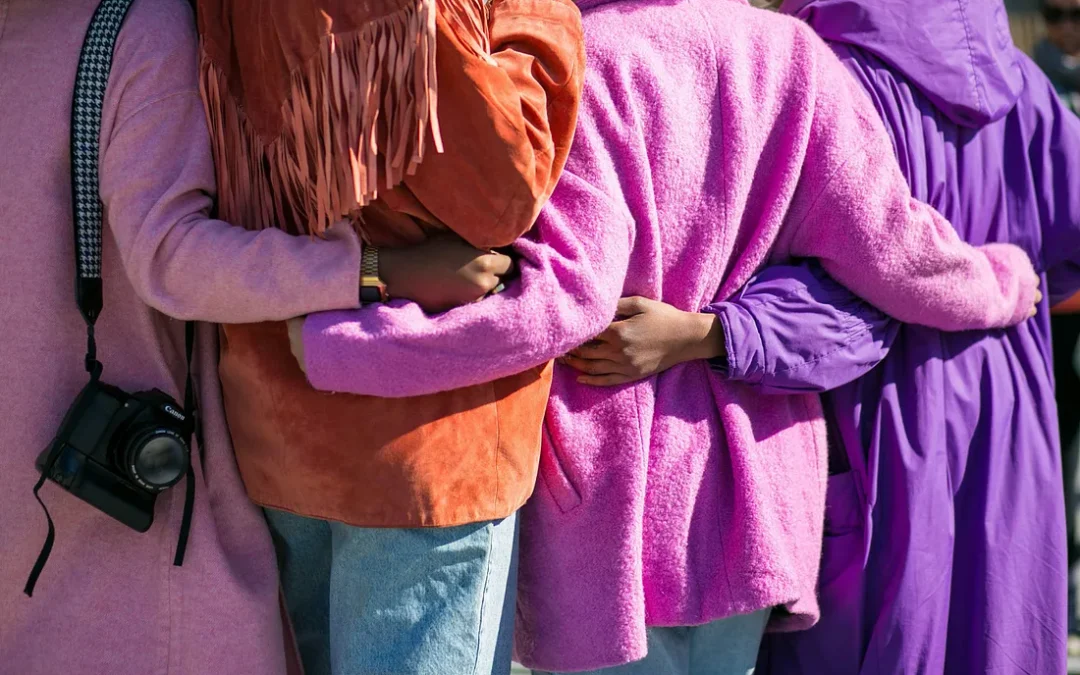Introduction
Are you feeling alone, isolated and touch hungry? Well, you’re not the only one! A Harvard survey conducted in 2020 found that 61% of adults from 18 to 25 reported feeling serious loneliness, compared to 39% across the general population. Social isolation is also a huge problem in older adults and it’s leading to a significant increase in dementia. What are we doing wrong?
The “One and Only”
In my view, one contributor is that we’ve been led to believe that one person, our romantic partner, is supposed to provide us with all the companionship, love, pleasure and touch that we need. Okay, maybe not all of our companionship because most of us still have friends, right? Most people believe that having friendships outside of our romantic relationships is a good thing but are we cultivating deeper connections with friends? Probably not and, even though many people have strong friendships, many do not and are in abusive relationships that restrict them from making friends.
That can make it really difficult for those who are unpartnered as well as those in relationships. Is it realistic to expect that one person can provide so much throughout a long life span? Absolutely not! We need to shift our thinking around creating community, connections and love beyond our romantic relationships.
Hurry Up and Partner Up!
When we expect all the things from one person, single people suffer the most. This shows up in dating as partnering up is the goal at the expense of taking time to learn about each other. Being in a romantic relationship is supposed to solve all the problems of loneliness. That’s a tall order for one relationship, especially one that is rushed into. This belief and the feeling of loneliness can make dating a high-stakes game where the goal is to commit to someone as soon as possible. It doesn’t have to be that way.
Friendships Are Key
True connection doesn’t have to solely occur in romantic relationships. Cultivating deep friendships and nurturing platonic connections can ease feelings of loneliness and provide the support and companionship we crave. So how do you cultivate these connections? Start by investing in your friendships. Take the time to nurture relationships with people who have shown up for you in tough times and who have the bandwidth to support you emotionally. Be vulnerable with them, and ask how you can deepen your relationship together. By prioritizing these connections, you can create a strong support network that will sustain you through the ups and downs of dating.
Platonic Touch is Available
But it’s not just about emotional connection — it’s also about physical touch. Many of us have been conditioned to believe that touch is only appropriate in romantic relationships, but this couldn’t be further from the truth. Platonic cuddling, for example, offers a safe space to practice asking for what you want, establishing boundaries, and receiving nurturing touch without the pressure of romantic expectations.
If you find yourself craving touch, consider exploring these alternative avenues for connection. Look for cuddle groups or professional cuddlers in your area who offer safe and consensual touch experiences. By stepping outside of your comfort zone and embracing new forms of connection, you can fulfill your need for touch in healthier, more fulfilling ways.
And when it comes to dating, don’t let loneliness drive you to settle for less than you deserve. Finding additional sources of connection and touch can provide a sense of ease when dating. There won’t be such a desperation to partner up so you can take your time and learn more about the people you’re dating.
Conclusion
In conclusion, overcoming loneliness and touch hunger is about getting your needs met outside of one romantic partner. By slowing down, investing in friendships, and exploring alternative avenues for touch, you can create relationships that are fulfilling, supportive, and built to last.

